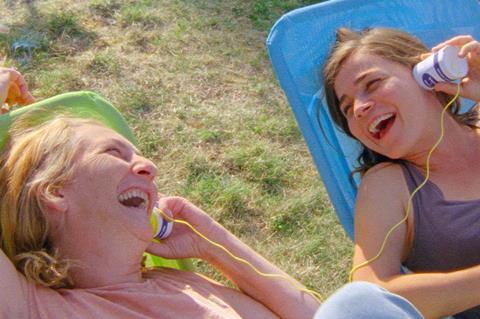
Investment in feature film production in France fell by nearly 30% in 2020 as a result of the Covid-19 pandemic, according to the annual production report of the country’s National Cinema Centre (CNC).
The study, published on Tuesday (March 30), showed total investment in feature film production came in at $920m (€783.9m) in 2020, against $1.3bn (€1.16bn) in 2019, representing a 29.8% drop investment.
Within this figure, $755.4m (€643.6m) went to majority French productions against $1bn (€903.4m) in 2019, for a 28.8% fall in investment in films initiated locally.
The CNC’s annual study collates data for all the feature films tapping into its support schemes over the course of a year. To access the body’s selective and automotive funds, producers have to submit detailed budget plans ahead of approval. Nearly all French films qualify for some sort of CNC support so the data gives an accurate indication of the state of the French production sector.
The study showed the number of features receiving CNC approval had fallen by some 20.6% to 239 features in 2020, against 301 in 2019. Within this figure, 190 films were majority French productions, against 240 in 2019, which represented a 20.8% drop.
“The health crisis had a number of consequences for French cinema production in 2020,” read the introduction to the study. Key were the suspension of production during the first national lockdown last spring from March 17 to May 22, 2020 as well as the closure of cinemas for 162 days in 2020.
The number of shooting days for majority-French productions fell by 30.2% to 4,267 days, 1,848 days less than in 2019 and the lowest level for 20 years. Within this figure, 3,590 of these days took place in France, with 3,388 taking place outside and 202 in the studio. International shooting days fell by 47.4% to just 677 in total.
The CNC detailed the measures it had put in place to support the production sector during the pandemic These included the launch on June 1 of a $117m (€100m) indemnity fund, co-financed by the state and private insurers, to cover costs that might be incurred if productions were forced to halt filming due to Covid-19. Further measures included a $28m (€24m) relaunch scheme for the entire production scene.
Despite these, overall state-backed support for majority-French films fell by 37% to $60m (€51.4m). Breaking this figure down, CNC automatic and selective support fell by 43.% to $39.6m (€33.8m) while regional funds dropped 19.5% to $20m (€17.6m).
Broadcaster investment also fell by 24.7% to $240m (€205.7) overall in 127 films, against $299m (€273.4m) in 171 films in 2019. Within this figure, investment by pay-TV networks fell by 25.5% to $132m (€113m) for 121 films, 39 less than in 2019. Free-to-view channels spent $108m (€92.6m), representing a 23.8% fall in investment, to co-produce or pre-buy 91 films, 17 less than in 2019. Canal+ investment in cinema fell by 27.4% to $89m (€76.6m). It invested in 86 CNC approved films, 34 less than in 2019.
Investment from theatrical and non-theatrical distribution deals as well as international sales fell by 26.7% to $111m (€95.13m), against $142.7m (€130.2m) in 2019, but the picture was complex.
Revenue via all-rights deals fell by 35.4% to $48m (€41.2m). Investment by distributors via minimum guarantees rose by 9.9% to $26.4m (€22.5m) in 88 films. Eight productions secured minimum guarantees in excess of $586,000 (€500,000). Investment via video and TV library sales was broadly steady. International sales investment fell by 33% to $34m (€29.9m), against $52.09 (€44.4m) in 2019.
Co-productions
The pandemic also weighed on France’s traditionally flourishing co-production scene with the number of co-productions falling by 24.1% to 88 productions involving 39 territories, against 116 in 2019.
Investment in co-productions plummeted by 45.8% to $323m (€276m), against $590m (€508.8m) in 2019.
The CNC cited factors such as Covid-19 travel restrictions as well as the suspension of state cinema funds in a number of European and non-European territories. The closure of cinemas and disruption of the festival and market circuit also played a part in the drying up of investment.
Additionally, the absence in many territories of state-backed insurance schemes like that in France to support productions in the event they were hit by a Covid-19 stoppage had also made it difficult to shoot across borders.
Top partners by territory include Belgium with 19 co-productions followed by Germany (9), Switzerland (6), Canada and Italy with three each, and finally Spain, Luxembourg and Senegal with two co-productions.






![The Brightest SunScreen[Courtesy HKIFF]](https://d1nslcd7m2225b.cloudfront.net/Pictures/274x183/3/5/0/1448350_thebrightestsunscreencourtesyhkiff_312678.jpg)


















No comments yet